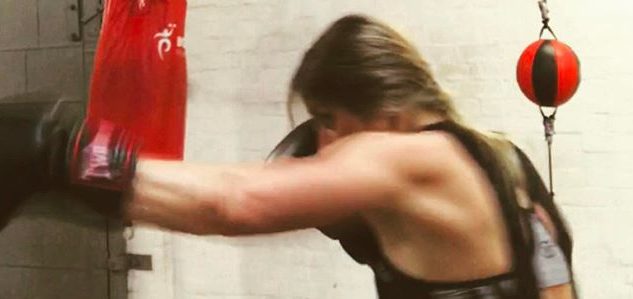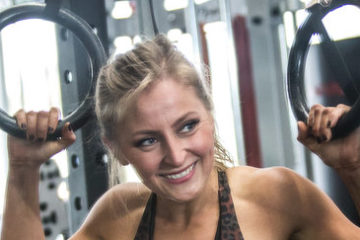Original article featured on Grace of No Age
For many years I have been working with women and being their confidante. One of the things I find incredibly sad is to hear how many women allow the negative thoughts they have about their body, impact their lives.
How does the way you feel about your body affect the quality of your life?
Body image is a huge issue for many of us, – thank you mainstream media!. Also, it has huge ramifications for how we think, feel and act towards our bodies.
A poor body image can lead to a long series of other issues like: poor mental health, low self esteem, relationship problems, substance abuse issues, avoidance behaviours, social isolation, chronic stress and sexuality and eating disorders.
From internal, relationship, familial, societal and career pressures, many of us equate the way we look with our self worth.
The hidden costs of poor body image
Poor body image can take much of the enjoyment out of our lives.
We miss out on simple pleasures like a day on the beach, participating in activities, even playing with our children.
One study found that in more than 50,000 adults, 60% of women were self conscious about their weight and thought they were too heavy. For that reason, they felt self-conscious about their weight, with 30% being too uncomfortable to wear a swimsuit. (1)
Another study found that around 70% of adult women withdrew from activities due to poor body image. (2)
Unfortunately issues around body image and self esteem also serve to hold us back professionally, crippling many from seeking out career progression, business opportunities or engaging in promotional activities, such as public speaking.
These issues, if not dealt with, can be transferred from generation to generation. Many of us may inherit body issues our mothers displayed, and their mothers before them.
How we relate to our body also changes during different phases of our lives, and can be particularly affected by the physical, emotional, and social changes of approaching menopause.
Actively improve your body image
One of the best things you can do to improve your body image and mental wellbeing is to get active. Unsurprisingly clinical research on how exercise can help improve women’s body image is lacking, when you consider how many companies profit from feeding negative body image.
Some smaller studies have shown that resistance training (strength based) in particular has been shown to be a particularly useful tool for supporting positive body image, fostering self-efficacy and psychological wellbeing. (3)
One study conducted on older women, concluded that strength training correlated with improved body image, quality of life, satisfaction and comfort, in aging rural women. (4)
Anecdotal evidence suggests that there are a few key factors related to exercising, that may help influence a more positive body image:
- Building a stronger body, builds stronger self esteem: This relates more specifically to resistance training, which improves body composition or the fat to muscle ratio of the individual. A body with more muscle tissue will be more metabolically active, to a greater level of perceived tone and can equate to greater self esteem. (5)
- Appreciating what the body can do: Learning to move better, creating greater body awareness and the ability to withstand greater loads can help the individual create a greater appreciation of what the body can do. This helps to shift the focus from the importance of physical appearance to appreciation of physical achievement.
- Mindful practice: Training with intent and focus becomes a mindful practice. Mindful practise is a proven tool for improving mental health and body image.
- Self-efficacy/mastery: The satisfaction of completing a task or acquiring a skill can help improve self esteem. Learning different training methodologies/techniques, successfully completing training blocks, lifting progressively heavier weights, these competencies help build self esteem.
- ‘State body image’: Exercise influences how we feel while we are training and the hours proceeding. A study from the University of British Columbia found that women who worked out improved their body image significantly, the effect being almost immediate and lasted for a minimum of 20 minutes after exercise. (6)
- Autonomy: Moving better, being able to carry heavy objects, and complete complex physical tasks builds a greater sense of autonomy. This in turn creates greater health outcomes, independence, and leads to an improved body image.
- Social implications: It takes courage to start exercising and focusing on getting stronger, as it is often outside of our comfort zones. However once that first step is taken a surprising benefit to training can be the social implications. Many gyms and fitness facilities foster supportive, community cultures, which can help improve how we feel about ourselves due to the sense of connection. This can boost lagging self esteem and our level of enjoyment in life. Many new relationships and important support networks are formed over a common desire to improve one’s health and quality of life.
If you feel like your body image is holding you back then it may be time to push yourself out of that comfort zone.
Get active, get lifting, get growing into a stronger, more confident version of yourself who loves her body, and is proud of what it is capable of.
- Etcoff et al (2006). Beyond Stereotypes: Rebuilding the foundation of beauty beliefs. Findings of the 2005 global study
- Frederick, D. A., Peplau, L. A., & Lever, J. (2006). The swimsuit issue: Correlates of body image in a sample of 52,677 heterosexual adults. Body Image, 3(4), 413-419
- ‘Strength becomes her’ – resistance training as a route to positive body image in women
- Strength Training Improves Body Image and Physical Activity Behaviors Among Midlife and Older Rural Women
- Sonstroem, RJ. The physical self-system: A mediator of exercise and self-esteem. In: The physical self: from motivation to well-being. Champaign, IL: Human Kinetics, 1997. pp. 3–26.
- How can exercise improve body image?
Katie Masters.
Body Health. Lifestyle. Menopause. Mental Wellbeing. Women’s Empowerment.


